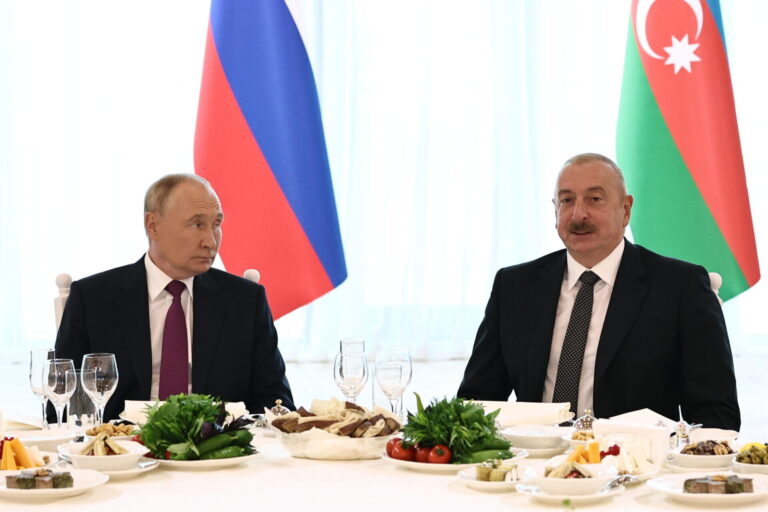Introduction
Russia has long positioned itself as an alternative power to the West in the Global South, portraying its diplomacy as non-imperialist and focused on sovereignty, military cooperation, and anti-Western solidarity. However, a growing number of setbacks—diplomatic failures, shifting alliances, and internal weaknesses—signal a decline in Russia’s ability to influence key regions of the Global South.
I. Causes of Russia’s Declining Influence
1. Overextension and Strategic Myopia
- Russia’s war in Ukraine has consumed political capital, military resources, and economic bandwidth. As of mid-2025, over 40% of Russia’s modernized ground equipment has been lost, limiting its foreign projection.
- Russian diplomacy remains reactive and militarized, relying on coercive tools (arms deals, mercenary deployments) rather than long-term economic or cultural investments.
2. Loss of Trust Among Allies
- Armenia and Kazakhstan have publicly expressed discontent with Russia’s “inconsistent” commitments. In May 2024, Armenian PM Pashinyan stated, “The CSTO failed us when we needed it most.”
- Azerbaijan increasingly views Russia as irrelevant in the new regional order shaped by Ankara.
3. Institutional Weakness
- Russian embassies in the Global South are underfunded and often eclipsed by Turkish, Chinese, and Gulf diplomatic efforts.
- Soft power tools like RT, Sputnik, and cultural diplomacy face credibility issues amid rising disinformation awareness.
II. Recognition of the Taliban Regime: A Desperate Gamble
1. Strategic Motivation
- In May 2025, Russia became the first P5 country to officially recognize the Taliban regime.
- Motivations include:
- Undermining U.S. and Indian presence in Central Asia.
- Gaining counterterrorism cooperation against ISIS-K.
- Access to Afghan minerals and trade corridors bypassing Western routes.
2. Consequences
- Central Asian countries (e.g., Tajikistan, Uzbekistan) condemned the move. Dushanbe warned of growing radicalism.
- India froze trilateral discussions with Moscow on regional connectivity.
- Iran expressed “deep concern” over Russia’s willingness to legitimize an extremist regime.
III. The Armenia-Azerbaijan Crisis: Collapse of Regional Hegemony
1. Breakdown of Influence
- In September 2023, Russia failed to intervene when Azerbaijan launched a rapid offensive into Nagorno-Karabakh, leading to full control over the territory.
- Armenia, a CSTO member, received no military assistance from Moscow. This led to the suspension of joint exercises and Armenia’s observer status in the CSTO.
2. Consequences
- Armenia initiated EU monitoring missions and joined NATO-led peacekeeping exercises in early 2025.
- Azerbaijan expanded energy and defense cooperation with Turkiye, bypassing Moscow.
- Russian peacekeepers in Karabakh were withdrawn in April 2025 after Baku refused to extend their mandate.
IV. Turkey’s Rising Role: Pushing Russia from the Caucasus?
1. Expansion of Influence
- Turkey has signed strategic cooperation agreements with Georgia and Azerbaijan, integrating their defense sectors.
- Ankara supplies Bayraktar drones, advisors, and joint military training.
- Turkish companies dominate reconstruction in Karabakh, reducing Russian economic relevance.
2. Strategic Consequences
- Turkiye is emerging as the main security guarantor in the South Caucasus.
- Russia risks complete marginalization, especially as Armenia cautiously opens dialogue with Ankara via Swiss mediation.
V. Could Russia Use the Taliban Against Ukraine?
1. Theoretical Vectors of Cooperation
- Covert use of Taliban-controlled smuggling networks via Iran and Pakistan to transport drones, narcotics, or mercenaries.
- Russian GRU may attempt to recruit ex-Taliban fighters or affiliated extremists through unofficial channels.
2. Risks and Limitations
- Taliban ideology is focused on Afghanistan; they have little strategic interest in Ukraine.
- Any public cooperation would risk massive blowback from Central Asia, India, Iran, and the West.
- Intelligence reports from late 2024 suggest Taliban factions rejected informal Russian proposals for foreign deployment.
3. Intelligence Estimate
The probability of direct Taliban military support for Russia is low (10–15%). Covert logistical or intelligence cooperation via third countries holds a higher possibility (30–40%).
VI. Scenarios and Strategic Forecasts
| Scenario | Description | Probability | Impact |
| Turkish-Led Order | Turkiye displaces Russia as the security and energy leader in the Caucasus. | High | Strategic collapse of Russian Caucasus hegemony |
| Taliban Blowback | Taliban support leads to radicalization in Central Asia or North Caucasus. | Medium | Internal destabilization and diplomatic fallout |
| China Fills the Void | Global South countries pivot fully to China for arms, energy, and diplomacy. | High | Russia becomes junior partner in Eurasian politics |
VII. Policy Responses and Global Impact
1. United States & EU Opportunities
- Expand NATO cooperation with Armenia and Georgia.
- Deepen connectivity projects in Central Asia (e.g., Middle Corridor).
- Sanction Russian-Afghan arms or narcotics networks, if verified.
2. Risks of Inaction
- If the West fails to engage, the vacuum may be filled by China or Iran.
- Russia may double down on asymmetric warfare and irregular partnerships, undermining regional stability.
ConclusionRussia’s foreign policy in the Global South is faltering. Driven by strategic overreach, weakened alliances, and outdated tools of influence, Moscow is losing ground to more agile and credible actors like Turkiye, China, and regional middle powers. The recognition of the Taliban, the collapse of ties with Armenia, and the rise of Ankara in the Caucasus symbolize a deeper structural failure. If current trends continue, Russia will no longer be a decisive actor in many parts of the Global South but rather a reactive, isolated, and increasingly irrelevant one.




